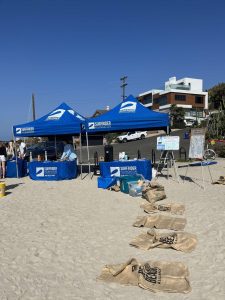This is my third year at San Diego State, and up until now there have only been a handful of concepts that I’ve never understood from my academic courses. I don’t understand conic sections from algebra. I definitely don’t understand Plato’s “The Allegory of the Cave” from world history. But the hardest concept to wrap my head around was why a class syllabus would list a “required textbook” that I’ll hardly ever use?
I want to clarify something first. When I say that I’ll hardly use the textbook, I don’t mean I’m neglecting my student responsibilities and not reading the assigned material. I mean there’s nothing of importance that I can learn from the book that isn’t already covered in lecture. I also mean that the class will only require a few chapters from the textbook.
Publishing Perspectives reported that in a survey of American college students, more than 75 percent admit to not buying required textbooks. Their reasons are that the books are too expensive and often only a few chapters of the textbooks are required to study. In fact, 34 percent of the students said that most of the time, they only needed a few chapters.
If this were a minor occurrence, I would be slightly annoyed at most. However, the fact that this has personally happened to me in five different classes is driving me insane. The fact that I never got a grade below an A- only fuels my anger because it shows that I really didn’t need that “required textbook” at all. I won’t ever have my money back for those textbooks that did nothing more than sit on my desk and act as a dust magnet. The $200 or more that I spent on those books are long gone, and unlike the Terminator, they won’t be back. What’s even worse are those textbook bundles that come with access codes or CDs that cost more than the textbook alone–only to later find that those supplements are never needed.
CampusBooks reported that approximately 65 percent of professors said that they either rarely or never use the supplemental material included in bundled textbooks.
That’s just rubbing salt in the wound at this point, paying for additional material you won’t ever use. [quote]But to make light of these situations, those textbooks weren’t completely useless; they made excellent paperweights, comparable to a bricked iPhone but not quite as stylish.[/quote]
So now that we’re well into the semester and past the Feb. 4 add/drop deadline, there’s no turning back. You should already have a sense of what your classes are going to be like this semester. By now you should know if your “required textbook” is as vital to your class as water is to your survival. If you’re absolutely sure that you’re not going to use your textbook or can manage to survive by studying with a classmate or even using the library’s Course Reserves system, then return that book immediately.
Since this is SDSU after all, I’m assuming that quite a bit of us purchased our books from the SDSU Bookstore or KB Books. Be aware of their return policies. The SDSU Bookstore only offers textbook refunds through the first week of the fall and spring semesters, so unfortunately there’s not much you can do at this point. KB Books also has a semester deadline and requires for you to return the textbooks in the original condition they were purchased in. For those who purchased or rented books elsewhere, be sure to check their return policies.
So what possible solutions are there to solve this required textbook dilemma? Perhaps professors should be upfront to their students about how necessary the textbook will actually be. One of my professors did just that. He told us he’s had students who never bought the textbook and did amazingly well in the class–I’m living proof.
But there’s also some responsibility in our hands to tell our professors if we’re not using the textbooks and if we’re doing just fine. They might not take those words lightly, but there should be candor between both students and professors regarding use of “required textbooks.”
There’s no doubt in my mind that you have at some point told fellow classmates when they won’t need the “required textbook,” and they likely thanked you in return. Telling your professors the same thing may be awkward, but if there is no “required textbook” there should at least be some “required honesty” between you and your professors. However, if you want to avoid a face-to-face discussion, then those end-of-the-semester online surveys are an optimal opportunity. Just be sure to tell them one way or another.
I’m actually more content when my classes do make full use of required textbooks because it means that I didn’t waste my money on an expensive paperweight. There’s no way to get my money back for those previous textbooks, but there’s no use crying over spilled milk. I’ve moved on and learned to spot the classes where “required textbook” actually means “hardly-required textbook.” I suggest you all do the same.
Photo courtesy of Thinkstock.










